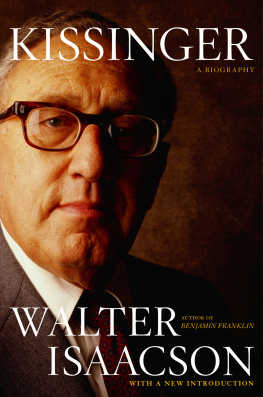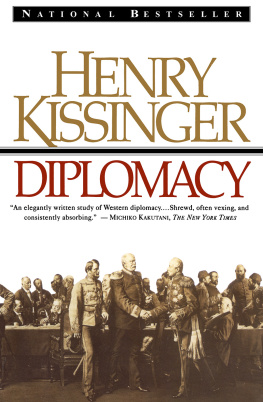I
An Invitation
T HE Inauguration took place on a bright, cold, and windy day. I sat on the platform just behind the new Cabinet and watched Lyndon Johnson stride down the aisle for the last time to the tune of Hail to the Chief. I wondered what this powerful and tragic figure thought as he ended a term of office that had begun with soaring aspiration and finished in painful division. How had this man of consensus ended up with a torn country? Johnson stood like a caged eagle, proud, dignified, never to be trifled with, his eyes fixed on distant heights that now he would never reach.
There was another fanfare and President-elect Richard Nixon appeared at the top of the Capitol stairs. He was dressed in a morning coat, his pant legs as always a trifle short. His jaw jutted defiantly and yet he seemed uncertain, as if unsure that he was really there. He exuded at once relief and disbelief. He had arrived at last after the most improbable of careers and one of the most extraordinary feats of self-discipline in American political history. He seemed exultant, as if he could hardly wait for the ceremony to be over so that he could begin to implement the dream of a lifetime. Yet he also appeared somehow spent, even fragile, like a marathon runner who has exhausted himself in a great race. As ever, it was difficult to tell whether it was the occasion or his previous image of it that Nixon actually enjoyed. He walked down the steps and took the oath of office in his firm deep voice.
Nelson Rockefeller
M Y own feeling of surprise at being there was palpable. Only eight weeks earlier the suggestion that I might participate in the Inauguration as one of the new Presidents closest advisers would have seemed preposterous. Until then, all my political experience had been in the company of those who considered themselves in mortal opposition to Richard Nixon. I had taught for over ten years at Harvard University, where among the faculty disdain for Richard Nixon was established orthodoxy. And the single most influential person in my life had been a man whom Nixon had twice defeated in futile quests for the Presidential nomination, Nelson Rockefeller.
It was Nelson Rockefeller who had introduced me to high-level policymaking in 1955 when he was Special Assistant for National Security Affairs to President Eisenhower. He had called together a group of academics, among whom I was included, to draft a paper for the President on a fundamental diplomatic problem: how the United States could seize the initiative in international affairs and articulate its long-range objectives.
It was a revealing encounter. Rockefeller entered the room slapping the backs of the assembled academics, grinning and calling each by the closest approximation of his first name that he could remember. Yet this and his aura of all-American charm served at the same time to establish his remoteness: when everybody is called by his first name and with equal friendliness, relationships lose personal significance. Rockefeller sat down to listen as each of us, intoxicated by our proximity to powerand I daresay wealthdid his best to impress him with our practical acumen. One professor after another volunteered clever tactical advice on how to manipulate nationsor at least the bureaucracy; how to deal with a President we did not know; or (the perennial problem of national security advisers) how to prevail over an equally unfamiliar Secretary of State. As we finished, the smile left Rockefellers face and his eyes assumed a hooded look which I later came to know so well and which signaled that the time for serious business had arrived. He said: I did not bring you gentlemen down here to tell me how to maneuver in Washingtonthat is my job. Your job is to tell me what is right. If you can convince me I will take it to the President. And if I cant sell it to him I will resign.
Rockefeller proved to be true to his word. We wrote a report; one of its ideas, the open skies proposal, was accepted. The sections spelling out long-range objectives were stillborn, partly because of the prevailing mood of self-satisfaction in the country, but largely because of the opposition of a powerful Secretary of State pressing his own convictions. At the end of 1955 Rockefeller resigned.
I had been part of a typical Rockefeller venture. Of all the public figures I have known he retained the most absolute, almost touching, faith in the power of ideas. He spent enormous resources to try to learn what was the right thing to do. His national campaigns were based on the illusion that the way to win delegates at national political conventions was to present superior substantive programs. He spent an excruciating amount of time on his speeches. Untypical as he might seem to be, he was in a way quintessentially American in his boundless energy, his pragmatic genius, and his unquenchable optimism. Obstacles were there to be overcome; problems were opportunities. He could never imagine that a wrong could not be righted or that an honorable aspiration was beyond reach. For other nations utopia is a blessed past never to be recovered; for Americans it is no farther than the intensity of their commitment.
Nelson Rockefeller, I am certain, would have made a great President. He possessed in abundance the qualities of courage and vision that are the touchstones of leadership. But at the moments when his goal might have been realized, in 1960 and again in 1968, he uncharacteristically hesitated. In the service of his beliefs he could be cold-blooded and ruthless; he was incredibly persistent. Yet there was in him a profound ambivalence. A kind of aristocratic scruple restrained him from pursuing the prize with the single-mindedness required and led him to exhaust himself in efforts to make himself worthy of the office. His entire upbringing made him recoil from appearing before the people he wanted to serve as if he were pursuing a personal goal; being already so privileged, he felt he had no right to ask anything more for himself as an individual. So he sought the office by trying to present to the nation the most sweeping vision of its possibilities and the best blueprint on how to attain them.
In a deep sense Nelson Rockefeller suffered from the hereditary disability of very wealthy men in an egalitarian society. He wanted assurance that he had transcended what was inherently ambiguous: that his career was due to merit and not wealth, that he had earned it by achievement and not acquired it by inheritance. In countries with aristocratic traditionsin Great Britain, for example, until well after World War IIan upper class moved in and out of high office convinced that public responsibility was theirs by right. Merit was assumed. But in the United States, the scions of great families are extremely sensitive to the charge of acquiring power through the visible exercise of influence or wealth; they believe that they must earn their office in their own right. But no more than a beautiful woman can be sure of being desired for her own sakeindeed, her own sake is inseparable from her beautycan a rich man in America be certain what brought him to his station in public life. If he is lucky he learns in time that it makes little difference. In high political office he will be measured by the challenges he met and the accomplishments he wrought, not by his money or the motives of those who helped him get there. History will judge not the head start but the achievement.
Nelson Rockeller never fully resolved this dilemma. After his untimely death it was said that he failed to win the Presidency despite the fact that he was a Rockefeller. The opposite was more nearly true. He failed largely because he was a Rockefeller. He was not above spending vast sums for his political campaigns, but at the same time he felt an inordinate obligation to justify his ambition by his programs and an extraordinary reluctance to realize his dreams by what he considered the demeaning wooing of delegates to national conventions. It is not quite the way our political process works, geared as it is more to personalities than to programs.

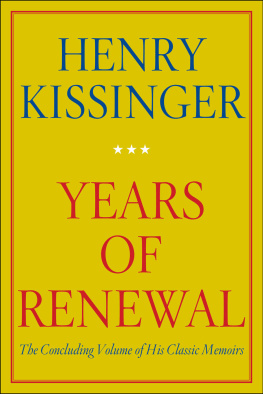
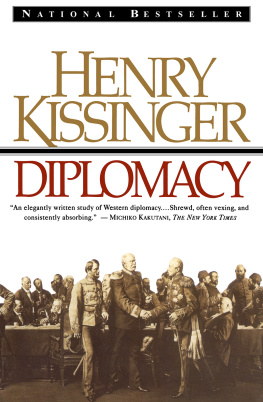


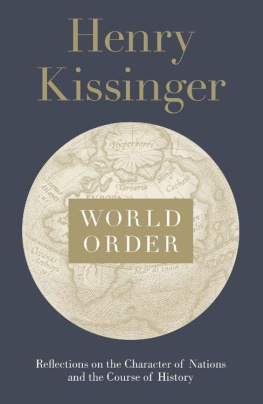
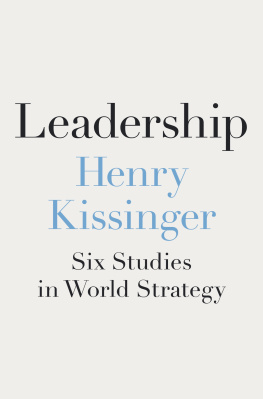

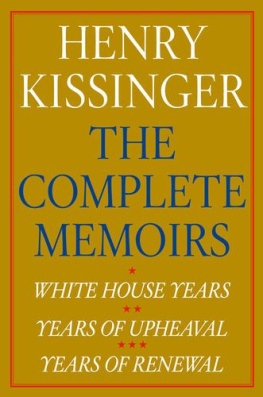
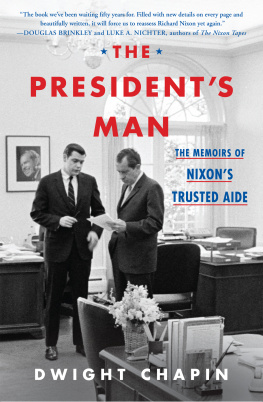
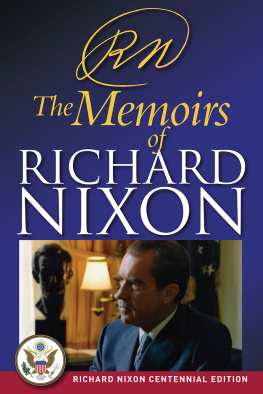
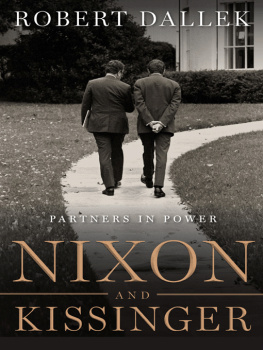
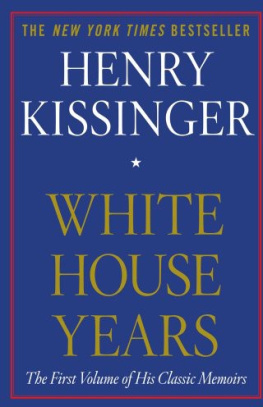
![Kissinger - Years of Upheaval: [VOL2 Classic Memoirs]](/uploads/posts/book/181244/thumbs/kissinger-years-of-upheaval-vol2-classic.jpg)

